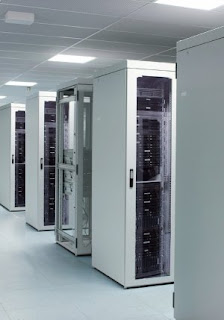
A lot of companies invest heavily in buying software to manage their business. Specially large companies have a variety of software applications like an ERP, a logistics solution, an HRMS integrated with the ERP along with some home grown applications.
If the infrastructure is not in tune with the software investments then the company would eventually face high costs of maintenance and high Total cost of ownership (TCO). Especially large companies, who have a heavy reliance on their ERP applications, cannot afford a failure in their IT infrastructure which would affect business continuity.
For instance if a data center crashes, then the business operations come to a halt, especially if the company has just one data center. Companies tend to ignore the importance of infrastructure planning. Disaster planning is critical in developing effective mitigation strategies.
To avoid such issues, it has become very important for IT managers to have a robust plan to manage their infrastructure needs. They should be well equipped to handle four major areas.
- Data Center Management: This is crucial since failure of a data center has serious implications on business. Hence most companies like IBM, Oracle and Cisco provide a wide array of data center solutions right from planning and design to its actual implementation. Strategies for the optimal deployment of servers, databases, messaging and storage systems help in effective management of data centers.
- Network Management: Network Management is also very important for fast and efficient access of data by all the users of the system. For instance, consider a large enterprise having around 8000 global users of SAP. In this case, availability and performance of networks is a very important factor affecting key business areas like production, planning, shipment etc. Leading networking solution companies like Cisco, Nortel, and Juniper provide robust networking solutions to assist these companies in building robust networks.
- Security Management: Security is always a key business concern for companies. Hence placing firewalls and intrusion protection systems seem to be a logical step towards the same. Companies like Checkpoint and VeriSign assist companies in this area.
- End User Services: End user services play an important role in faster delivery of information and problem solving. For instance a service desk is essential for troubleshooting and escalation management.
It is therefore imperative for companies to have an IT infrastructure plan in place, along with software implementation. This would only lower the TCO and add to the bottom line profits of the company. For smaller companies cloud computing has become a viable option, since they do not have to invest time and resources in managing IT. They can focus their energies into their core capabilities, which are managing their business.
Even larger companies who shrug to maintain IT are outsourcing it to best in class software companies. Cloud computing is becoming a viable option for large companies as well, with its increasing popularity and business advantages. Nonetheless, companies with an existing IT infrastructure and those who deploy IT at their end need to be well prepared to manage IT effectively.
Written By:
Lawrence Gilbert
(Business Development Executive at Accent Consulting)

